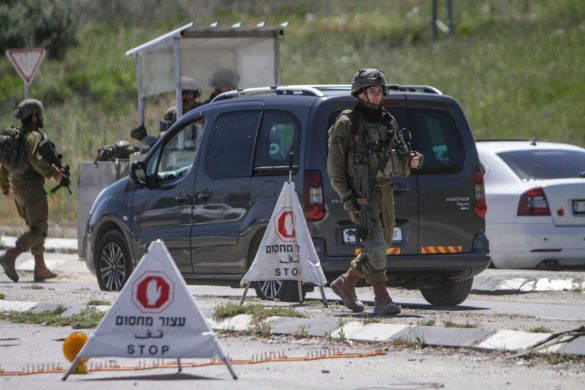I Benghazi – de libyske oprøreres hovedstad – bespiser nationale og internationale NGO’er nødstedte familier og søger også at hjælpe børn, som på forskellige vis har fået men af krigen. Folk mangler mad og har ingen penge. Børn savner en normal tilværelse. Hvad der sker i krigen, har byens indbyggere svært ved at følge med i, rapporterer Irinnews.
BENGHAZI, 18 August 2011 (IRIN) – As conflicting reports come in of rebel advances on the Libyan capital Tripoli, civil society organizations and international NGOs in the rebel capital, Benghazi, are trying to help vulnerable people cope with difficult conditions.
At dusk, a group of uniformed Libyan Scouts works discreetly, arranging tables and chairs, putting out trays of pre-packaged meals, rice, meat, milk, fruit, dates, juice and water. The guests arrive, quickly filling up the square: families with children, groups of friends, men sitting quietly on their own. The meal is rapidly consumed. Prayers are said. People leave quickly and the Scouts are put to work again, removing the debris, clearing the tables.
The food is free, its distribution organized by the Scouts in partnership with the UN Refugee Agency (UNHCR) and international NGO Mercy Corps. “This is a difficult month for people, particularly in terms of finding food and money,” said Tarek, a mechanical engineer and scout leader, supervising the meals. “We are still a long way behind on salaries and the banks are reluctant to pay out much. Everyone’s hope is that the money we have outside Libya will come and we can live normally again. Inshallah.”
Meanwhile, in a compound next to Benghazi’s Garyounis University a volunteer helper takes the microphone and starts organizing the evening’s games, choosing participants, appealing for calm, breaking out into song. Fellow-helper Salwa, a cashier at the university, said the children here have mostly come from conflict-affected parts of Libya, towns like Brega, Ajdabiyah and Ras Lanuf, all to the west of Benghazi.
“These children have bad memories and we want them to forget the war,” Salwa explained. “Here they can relax, but we don’t want them to forget about school. They are learning Arabic and Mathematics. They are keen to learn anything.”
Working closely with local partners, international NGO Save the Children (SCF) has helped create “child-friendly spaces” around the city, play and study areas, as well as dormitories. “Children need routine,” explained Jenny Humphries from SCF. “They need a sense of normality in their lives that has been missing since the conflict began.”
Parents and teachers have been told that a full schools programme will get under way once Ramadan is over. But people in Benghazi are wary about raised expectations and false promises.
Aid workers are calling for an expansion of child protection programmes to other areas as well like Misrata and Nafusa Mountains. A recent assessment in Benghazi found limited capacity to deal with child protection issues, that the children had been exposed to violence due to the conflict and suffered widespread psychosocial distress.
Playing down the problems
Students, shop-keepers, fish vendors, laid-off workers all admit a certain frustration at current conditions, but tend to play down the problems, the loss of revenue, the problems of liquidity and the frequent power cuts. “Sure, orders are down, I am only selling four pairs of trainers when I would have been selling twice that a while back,” said Ashraf, a shoe shop owner. “But in terms of things that matter to me, a drop in income is about third or fourth on my list of concerns.”
The graffiti and murals in the city’s renamed Tahrir Square depict Libyan leader Col Muammar Gaddafi as a traitor to the Libyan people and Islam. People talk passionately about the inequities Libya experienced under his rule. Walid, a geologist with an oil company, said the government had thrown away the goodwill it had generated at the start of Gaddafi’s rule, alienating ordinary Libyans by sidelining the Koran in favour of his own Green Book.
Walid talked angrily of reports of past human rights abuses. As with many others in Benghazi, he singled out the Abu-Salim massacre at the high security prison in Tripoli in 1996 as the worst episode of Gaddafi’s 42-year rule, arguing that a routine protest over conditions had ended with the needless slaughter of hundreds.
Najib, a car mechanic, and Abdul Nasser, an oil company employee, talked of years of neglect, with eastern cities like Benghazi deprived of investment and infrastructure. They mocked the government record on health care and education. They railed against the futility of the war with neighbouring Chad, fought off and on between 1978 and 1987. “People died for nothing and the truth was never told,” said Najib.
Relying on rumours
Benghazi residents follow the conflict in Libya closely, both through the government media and the international TV chains. But they admit difficulty in getting a clear picture, trying to make sense of the shifting fronts and the competing claims from both sides. News of the death of Gaddafi’s son, Khamis, reportedly killed by an air strike, ran strongly on both local and international media, but the story turned out to be false.
“We suffer from too many rumours,” Walid acknowledged, stressing how difficult it had been to talk freely in the past, how ordinary people had suffered from a debilitating lack of trust, worn down by the pro-Gaddafi People’s Revolutionary Committees. Even now, in “liberated Benghazi”, there are frequent references to fifth columnists and saboteurs.
But life goes on. Watching an impatient queue of bank customers in the Garyoun district of the city, electrical engineer Omar Ramadan said people were not yet desperate, but tired of waiting for change.














